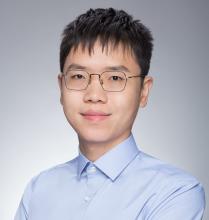CS Colloquium
Speaker: Ling Ren, MIT
Title: Cryptographic Primitives for Hardware Security
Host: Zhong Shao
Abstract:
Hardware plays a critical role in today’s security landscape. Every protocol with security and privacy guarantees inevitably includes some hardware in its trusted computing base. The increasing number of vulnerability disclosures calls for a more rigorous approach to secure hardware designs. In this talk, I will present several cryptographic primitives to enhance the security of hardware. I will first describe our work on Oblivious RAM (ORAM), a cryptographic primitive to prevent access pattern leakage. Among other things, I will present the first constant bandwidth ORAM scheme, Onion ORAM, which uses memory-side computation to avoid a well-known logarithmic lower bound. Next, I will discuss the use of Physically Obfuscated Keys (POK) to strengthen the security of private keys. In particular, I will present a computational fuzzy extractor based on the Learning Parity with Noise (LPN) problem that uses stability information as a trapdoor to correct a constant fraction of errors efficiently.
While hardware is often trusted as a line of defense, it can also be utilized by attackers. The advent of ASIC hash units calls into question the security of hash functions and proof-of-work systems. I will describe bandwidth-hard functions to achieve ASIC resistance and also briefly touch on my other projects in blockchains and consensus.
Bio:
Ling Ren is a final year graduate student at Massachusetts Institute of Technology. He received his Master’s degree from Massachusetts Institute of Technology and Bachelor’s degree from Tsinghua University. His research interests span computer security, cryptography, computer architecture and distributed computing. He won the best student paper award at CCS 2013.
